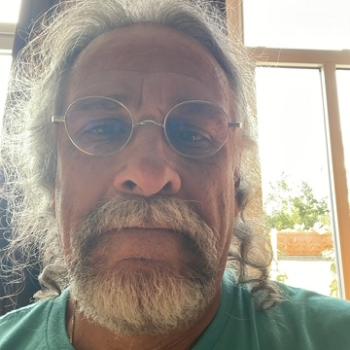Is it a villain you want? I'll play the part. After all, what is a drama without a villain? And what is the building of this grand road if not a drama? ~ Thomas Durant, "Hell on Wheels"
As a lifelong Western devotee, I have spent countless hours lamenting the cruel decades that separate my childhood from the heydays of the TV Western serial. Truth be told, I've been searching for a weekly oater upon which to hang my ten-gallon hat for about as long as I can remember, so it comes as no surprise that the recent resumption of AMC's "Hell on Wheels" was a noteworthy event in the Susanka household.
Sadly, Season Two is currently unavailable to CableCutters like me, but here's a bit of context: Cullen Bohannon (Anson Mount), a displaced Confederate officer consumed by a desire for vengeance, tracks those responsible for the killing of his family to Hell-on-Wheels, a mobile shantytown that has sprung up around the Union Pacific Railroad's back-breaking TransAtlantic efforts. Despite his secretive, misanthropic behavior, Bohannon's leadership qualities are too obvious to ignore, and he is hired on as foreman by Thomas Durant (Colm Meaney), the man behind the hoard of tarriers, whores, freedmen, and cutthroats now propelling the Union Pacific's steely fingers across the Western plains.
Progress is slow, and plagued by difficulties: a chilly reception from the local Indian tribes; Durant's money woes, exacerbated by the greedy, corrupt politicians backing his project; rising tensions between the Irish laborers and emancipated slaves that threaten the camp's fragile symbiosis; and the unexpected death of the project's lone surveyor. His wife, Lily Bell (Dominique McElligott), a refined Englishwoman "making her own way in a world that has no place for her," uses her husband's maps as bargaining chips to further her own interests, but one wonders if she is truly prepared for the cut-throat brutality of Hell-on-Wheels.
Sweeten the pot with The Swede (Christopher Heyerdahl), an Andersonville-scarred Norwegian whose efforts to impose order through sheer willpower are aided by his terrifying theory of "moral mathematics"; stir in Reverend Nathanial Cole (Tom Noonan), whose gentle ways and desperate pleas for peace are calculated to conceal his own violent past; add a bit of Elam Ferguson (hip-hop artist Common), a particularly sullen emancipee whose obsession with his own slavery is matched only by his desire to subjugate others in return; and top it all off with a laundry list of dirt-caked, often despicable characters who have embraced this nomadic life because they're afraid of where they've come from, or because they have nowhere else to go. Bohannan quickly regrets his decision to "set a spell in Hell," struggling to free himself not only from Hell-on-Wheel's unsavory inhabitants, but from the clutches of his own darkest demons.
I have willingly forgiven "HoW" a multitude of storytelling sins. I am not, however, blind to them, particularly when the majority of the show's thematic and narrative weaknesses can be traced to a single cause: the tendency to present its heroes as incarnated ideas rather than real people. Why would the somber Bohannan embark on an extended leave of absence moments after being named foreman of Durant's entire operations, you ask? To stumble across the distressed damsel Lily Bell upon his return, of course! Does it make sense in a "let's make sure certain things happen for the sake of the story" kind of way? Yes. Is it something an ordinary, real-life human being would do? No. (And does this damage our ability to relate to the unnecessarily unpredictable Bohannan? Without question.)
Another direct result of "HoW's" failure to value characters over ideas is its inability to produce compelling heroes. Bohannan's cliché-laden struggles are strangely sterile—a result of his erratic behavior and the obvious, often ill-fitting agendas of his creators. Constantly reminded of the role he must play in support of the show's larger, overarching themes, we are never quite willing to embrace him as a believable, relatable character. Unsurprisingly, this gap is filled by men whose charismatic personalities are unhindered by the need to say (or do) something deeply meaningful: the glory-and-gold-seeking Durant and his twisted henchman, The Swede.





